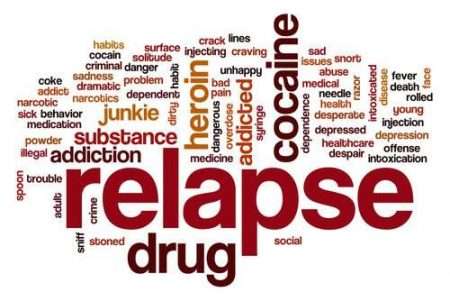We all know that one person who’s always up for happy hour and ready to drink for any occasion
Something to celebrate? Champagne! Something bad happened? Let’s drown our sorrows at the pub. Bored? Maybe a beer will spur inspiration.
These are usually fun, social people, and in addition to their impressive drinking skills, they tend to stand out as people who have it all together – career, family and an enviable lifestyle. Unfortunately, this picture-perfect facade often prevents others and themselves from asking if they are harbouring a dark secret. This person may, in fact, be a functioning alcoholic.
When most people think of alcoholics or drug addicts, they don’t picture a middle-class mother of two, a straight-A university student, or the CEO of a financial firm. The image that comes to mind tends to be a rather negative one.
Because of this, many functioning alcoholics and drug users fly under the radar among other addicts. Not only that, a functioning alcoholic will often not exhibit outward symptoms of addiction, and may not believe they have a problem themselves.
Despite maintaining a pleasant public image, functioning alcoholics may not enjoy their seemingly put-together lives, if you look behind the curtain. Moreover, even if they do admit to having a problem, others may not believe them.
What is a Functioning Alcoholic?
- Also known as a functional alcoholic, or high-functioning alcoholic, a functioning alcoholic is still an addict, not unlike someone addicted to meth or heroin. A functioning alcoholic will abuse alcohol while maintaining a stable public image and/or lifestyle.
- Some people will show the usual signs of addiction or alcohol use while others won’t. They are also likely to be in denial about their problem, and may even joke about their alcohol intake. Others may not drink in public at all, and keep their habit a secret.
- Overall, functioning alcoholics do not believe they have a problem with their drinking and have a talent for making others believe so as well. Even if they show signs of alcohol misuse, they can spin the story in their favour by saying things like, “I have a high tolerance”, or “I always have a glass of wine with dinner” or joke about them being an alcoholic because it’s Friday night.
It can be difficult to spot a functioning alcoholic
A functioning alcoholic will not have a set drinking pattern. Some may drink every day; others will binge-drink on the weekends. Some are always out drinking socially, while others prefer to enjoy their alcohol alone.
Some functioning alcoholics will even give the illusion that they have control over their drinking by creating rules, such as “I only drink top-shelf liquor,” or, “I can start to enjoy my wine at lunch,” or, “I don’t drink when I’m working, only when I’m out with friends.” It becomes less about the amount that one drinks, and more about how they drink. Having said that, many functioning alcoholics do drink in excess, even if not every day.
It is estimated that around 20% of all alcoholics are classified as “functional alcoholics”. The typical functioning alcoholic is middle-aged, well-educated, has a stable job, and stable family life. Many have a family history of alcoholism and suffer from depression. About half are also smokers.
Signs of Functional Alcoholism:
While some functional alcoholics may exhibit typical signs of alcohol misuse, others may not show any at all. However, functional alcoholics also have other behaviours to watch out for.
Physical signs to watch out for in a functioning alcoholic:
- Consuming excessive amounts of alcohol at a time
- Changes in appearance
- Not having hangovers
- Blackouts or memory loss
- Health problems, especially liver issues
- Red eyes, tiredness, or a red face
Behavioural signs that someone may be a functioning alcoholic:
- Risk-taking behaviour
- Pre-drinking before social events
- Secrecy
- Drinking alone, and frequently
- Breaking personal commitments
Functioning alcohol may exhibit these emotional signs:
- Fluctuating moods/personality (especially with the intake or lack of alcohol)
- Joking about their drinking or alcohol
- Denial and anger when confronted
- Justifying their drinking (“I deserve this” or “I only drink expensive wine”)
What’s Wrong with Being an Alcoholic if You’re Functional?
Although you seem to have it all on the outside, you are likely suffering on the inside. Alcoholism, functional or not, is still an addiction that needs to be treated. If it is not, you will likely stop being “functional” in the long-run.
One of the main problems with being a functioning alcoholic is that you don’t draw any attention from your drinking. From the outside, people see someone who is living a stable life with no problems at all. You will ignore the fact that you are drinking to excess since everything else is going so well. This denial from both the people close to you, and yourself, is likely to cause additional problems in the long-run. Alcohol abuse will transform into addiction until you are no longer “functional”.
The problems build-up
Even if you have some control over your drinking, this may not last. If you start drinking at work, you may make a mistake. Even if you don’t, the chronic drinking outside of business hours will take a toll on your productivity when you are sober.
If you are a functioning alcoholic, you typically won’t run into legal issues – but it only takes one mistake. Left untreated, you will eventually slip up, and drink when you shouldn’t, such as driving. In addition, you are more likely to take part in risky situations since alcohol lowers inhibitions.
Functional or not, any person who abuses alcohol is not immune to the associated health problems. Functioning alcoholics are just as likely to get liver damage, digestion problems, brain damage and other issues. And by the time health problems appear, they will be more difficult to treat. So it is important to get treatment, at a rehab or other addiction treatment facility, before it becomes a bigger issue.
Alcoholism affects everyone around you
You may think that your drinking isn’t harming anyone but yourself – but you need to recognise that you indirectly pose a risk to everyone around you. Driving drunk is one example; but you may also need to look after children, take care of responsibilities at home or work, and you may cause distress to your family and friends.
A large per cent of functioning alcoholics also suffer from depression or other mental issues, which can also wreak havoc on your wellbeing if untreated.
Functioning alcoholics often don’t realise they have a problem until something shakes up their seemingly stable life. So the jump from fully functional to “rock bottom” is quite short. One minute everything is going well; the next, it all falls apart. For example, their partner may file for divorce, or they get caught drinking at work and lose their job. Before getting to this stage, a rehab or addiction treatment will be able to help you quit your addiction.
What’s it Like Being a Functioning Alcoholic?
Natassia, 26, appears to everyone as a young woman with an impressive career. For a long time, she didn’t think she had a problem, and even when confronted, she didn’t see a problem with her drinking.
“I’m French, so a glass of wine with dinner and aperitifs have always been part of our life at home, however, alcohol didn’t really interest me until I landed my first serious job as a business consultant after college. At first, I didn’t even drink much, only when we had meetings with clients, or with my colleagues after a busy week at work. I don’t really remember when things changed but before I knew it, I was drinking at least a bottle a day or more. I couldn’t even get any work done until I had a pick-me-up.
In my field of work, drinking is expected, as is socialising. Having always been shy, I quickly realised that alcohol made me more extroverted, so I became better at my job. I made a lot of friends because I was the “life of the party”.
“I had a job people would kill for and I was doing very well”
Most people didn’t notice my bad habits because I appeared to have everything and was overall organised and successful. At some point, people that I met started to comment about how much I drank, but I didn’t care – I had a job people would kill for and I was doing very well. My lifestyle is none of their business. Plus, unlike them, I never missed work, kept a strict exercise routine, ate well, and was never hungover when I drank. After a while, my then-boyfriend also started noticing that maybe I was overdoing it with the booze, which annoyed me a lot, so when we broke up it was a real relief. I thought – finally, I can drink in peace!
I’ve never been secretive about my drinking, but I often get uncomfortable when I make too may trips to the liquor store or my favourite bars and the staff start to recognise me. If I felt like I was being judged, I’d start shopping somewhere else for a while.
“There was no one instance that made me finally confront my problem”
Likewise with friends. I stopped hanging out with people who commented about my drinking and created a new social circle, where everyone loved to drink as much as I.
There was no one instance that made me finally confront my problem. Rather, it was a series of events. Like, I remember I was celebrating new years with my ex-boyfriend and I somehow ended up drinking so much that I just blacked out. I don’t remember anything from that night, except waking up in the restaurant bathroom passed out and not knowing how I got there or what happened the last five hours. I missed the countdown, the party, the kiss, everything. But I thought, okay, maybe I just had mixed too many drinks or something.
Then there were a few times when I accidentally had too much before a work meetings, which lead to me losing the clients, and that was rare for me. Even then, I brushed it off because, hey, we all have bad days, right?
“I finally realised I was seriously risking my life”
It was only after a series of unfortunate events that all hit in one moment when I realised I had a problem. I was likely going to lose my job because I couldn’t think straight for five minutes. And I would cause my friends to lose theirs because we were always up all night drinking, which led to us making tons of bad decisions. Not to mention I was getting into constant fights about nothing with my new boyfriend, and I could tell he was two arguments away from leaving me.
And then, one day, after a binge-drinking session, my friends and I decided to buy some drugs. This was stupid because the guy we thought was dealing was a fake, and he tried to attack and rob us. Luckily, we ran away, but after that, I finally realised that I was seriously risking my life and could lose everything that I worked so hard for. That was when I decided I needed to stop drinking and get help.”
How Can I Help a Functioning Alcoholic?
Stories like Natassia’s are not uncommon. It can be very hard for functioning alcoholics to realise they have a problem, with or without others’ input. If you are drinking more alcoholic units than recommended, you may have a problem. If you reach for alcohol on a regular basis, you may have a problem. Or perhaps you find yourself dependent on alcohol to get through the day – you likely have a problem.
The best thing to do is to watch out for signs of functioning alcoholism in yourself and your loved ones, so you can address the issue before it escalates.
If your loved one shows signs of functional alcoholism, don’t make excuses for their behaviour and confront them. Make sure to have a clear stance on the situation, but also remain compassionate. Don’t attack them; starting a fight can yield the opposite effect.
As a first step, attending a therapist session or a support group can be helpful in understanding your behaviour to assess if your drinking is problematic. Many people will find it hard to accept that they are an alcoholic, and need help to overcome addiction. Going to a rehab can be beneficial, because the treatment is intense. The residential stay can be helpful as you take a break from the environments, or workplace, that encourage you to drink. Give yourself the best chance at recovery by going to a rehab, or addiction treatment, today. The earlier you get treatment, the better.



